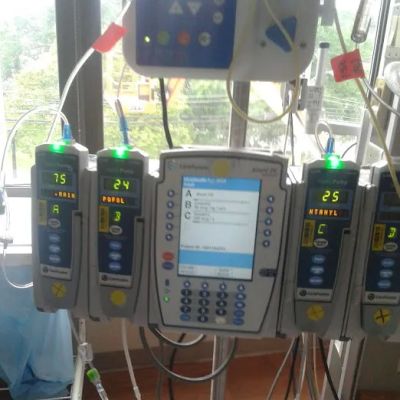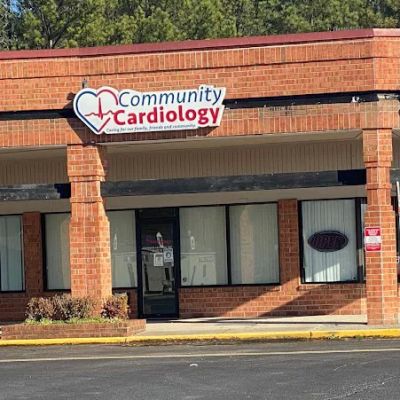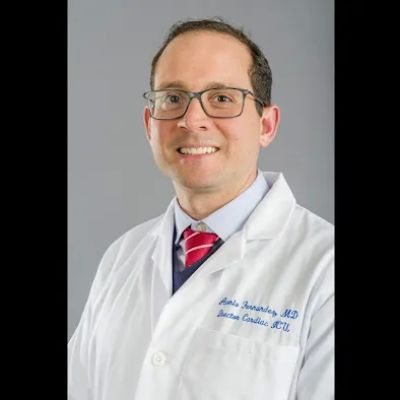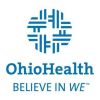Why Regular Heart Check-ups Are Essential for Your Health
- 1. Understanding the Importance of Heart Check-ups
- 2. How Regular Heart Check-ups Help Prevent Heart Disease
- 3. Why You Should See a Specialist for Heart Health
- 4. What to Expect During a Heart Health Screening
- 5. A Real-life Story: How Regular Check-ups Saved a Life
- 6. How to Get Started with Heart Health Check-ups
1. Understanding the Importance of Heart Check-ups
Our heart is the engine that keeps us alive, so it’s essential to take good care of it. I remember, years ago, I never really thought about heart health. I was young, active, and felt invincible—until a routine check-up opened my eyes to the importance of staying proactive about my cardiovascular health.
Heart disease doesn’t just affect older people or those with obvious symptoms. It can develop slowly, often with no symptoms at all, which is why regular heart check-ups are so important. These check-ups help detect issues before they become serious problems, enabling you to take action early on and improve your overall health.
2. How Regular Heart Check-ups Help Prevent Heart Disease
One of the main reasons to schedule regular heart check-ups is to catch potential heart disease early. Heart disease can develop over time, often without noticeable symptoms. Conditions like high blood pressure, high cholesterol, and a buildup of plaque in the arteries (atherosclerosis) can all lead to heart attacks or strokes if left untreated. Regular check-ups with a specialist allow for monitoring of these risk factors and enable early intervention.
During these check-ups, doctors typically conduct tests to assess your cholesterol levels, blood pressure, and heart rhythm. They might also use imaging tests to check for plaque buildup or abnormalities in your heart's structure. The earlier these issues are identified, the more likely it is that lifestyle changes, medication, or other treatments can help prevent more severe problems from occurring.
3. Why You Should See a Specialist for Heart Health
While general check-ups are essential, seeing a heart health specialist offers a deeper understanding of your cardiovascular system. Cardiologists specialize in diagnosing and treating heart conditions, and they are experts in interpreting the results of heart tests. Seeing a specialist can give you peace of mind, knowing that you’re receiving the highest level of care tailored specifically to your heart’s needs.
I made the decision to consult a cardiologist after my family history of heart disease became a concern. My cardiologist took a thorough history and explained the importance of regular screenings. They also guided me through lifestyle modifications and medications, when necessary, that could reduce my risk. A heart specialist is also well-equipped to help you manage conditions like arrhythmias, heart failure, or coronary artery disease, providing treatments that general practitioners might not be able to offer.
4. What to Expect During a Heart Health Screening
If you’ve never had a heart health screening, you might wonder what to expect. Typically, the process starts with a conversation about your medical history and any risk factors, such as a family history of heart disease, lifestyle factors like smoking or exercise, and your eating habits. Your doctor will then take measurements such as your weight, height, and blood pressure.
Depending on your risk profile, your doctor might recommend additional tests such as blood tests to check cholesterol levels, an electrocardiogram (ECG) to evaluate your heart rhythm, or a stress test to assess how your heart performs under physical exertion. Imaging tests, such as an echocardiogram, may also be used to visualize the heart's structure and function.
These tests give your doctor critical information that can help prevent heart disease or detect problems early. Even if you feel healthy, it’s important to take this proactive approach to monitor your heart health.
5. A Real-life Story: How Regular Check-ups Saved a Life
Let me share the story of my close friend, Sarah. She’s in her early 40s, and despite leading a healthy lifestyle, she felt occasional chest discomfort. She thought it was just stress, but during a regular check-up, her doctor ordered an ECG and discovered that she had a blockage in one of her coronary arteries. This was a wake-up call for her. Without the check-up, the problem might have gone unnoticed until it was too late.
Thanks to her regular heart check-ups and a timely referral to a cardiologist, Sarah was able to undergo a minor procedure that cleared the blockage. Today, she feels healthier and stronger than ever. This experience highlights how crucial it is to not ignore your heart health and to take regular check-ups seriously. Sarah’s story could have been very different if she hadn’t taken the initiative to see her doctor.
6. How to Get Started with Heart Health Check-ups
If you’re considering regular heart check-ups, the first step is to schedule an appointment with your primary care physician. They can assess your overall health and help you determine the appropriate tests and screenings for your age, family history, and lifestyle factors. If necessary, your primary care doctor can refer you to a heart health specialist for more detailed evaluation and treatment.
Remember, heart disease doesn’t happen overnight. It’s a gradual process that can often be controlled or even prevented with early detection. Whether you're in your 20s, 30s, or beyond, it’s important to make heart health a priority. Regular screenings can save lives, and the earlier you address potential issues, the better your chances are for a long, healthy life.
Don’t wait for a warning sign. Take control of your heart health today and book your heart check-up with a trusted specialist.




















